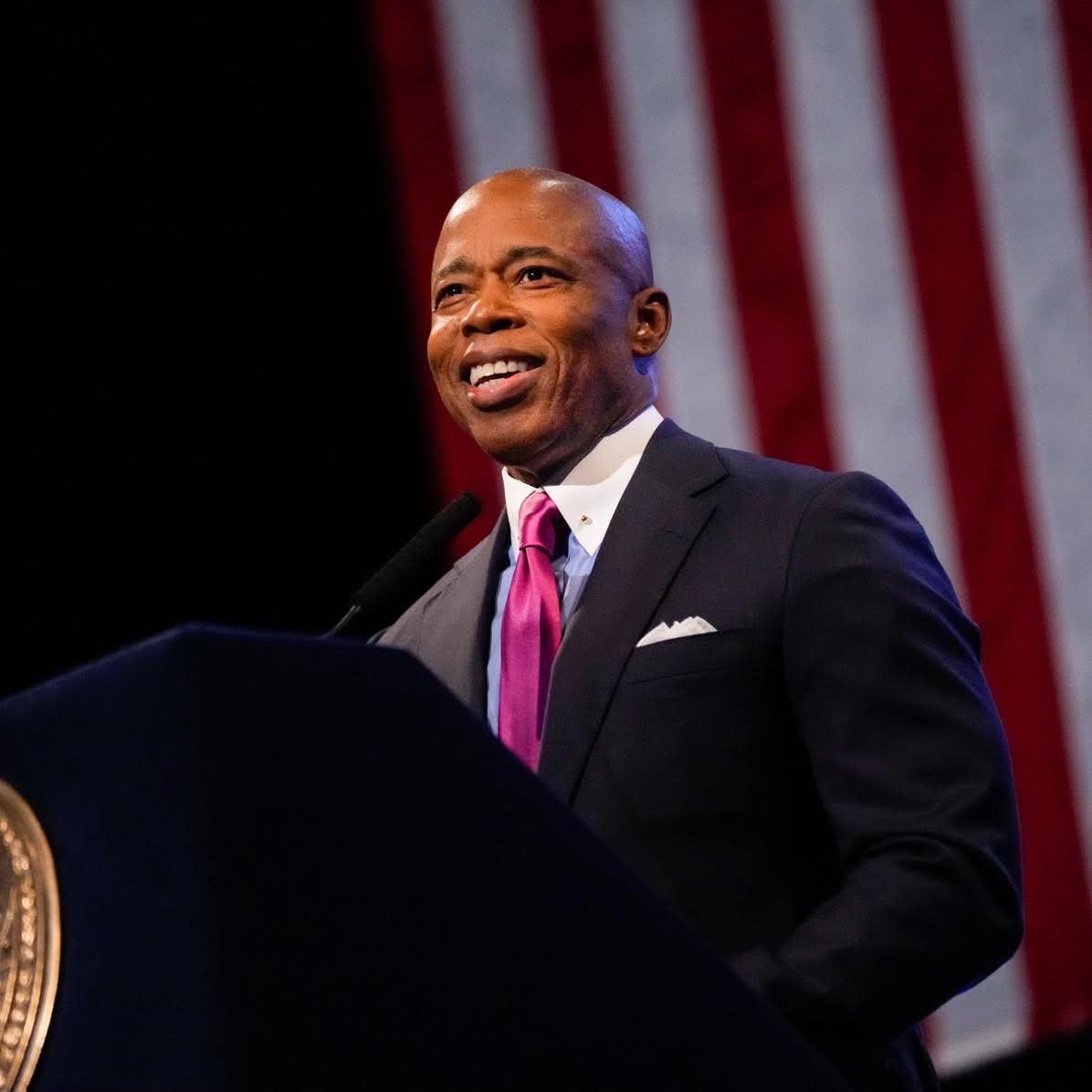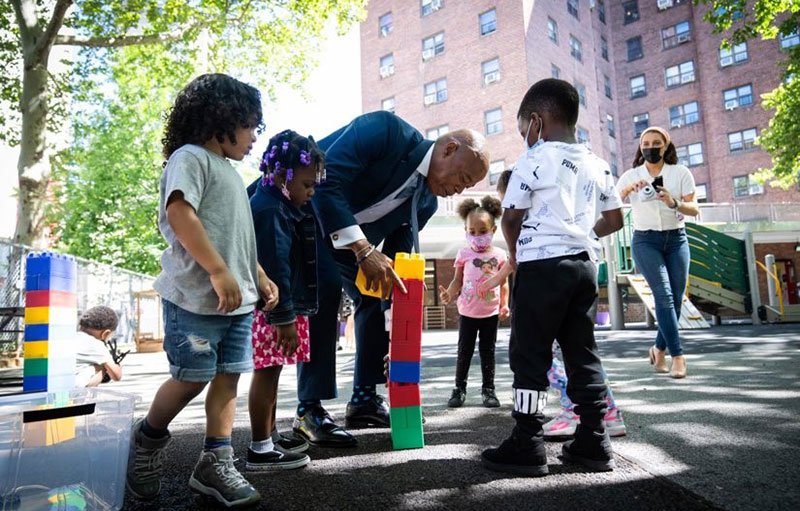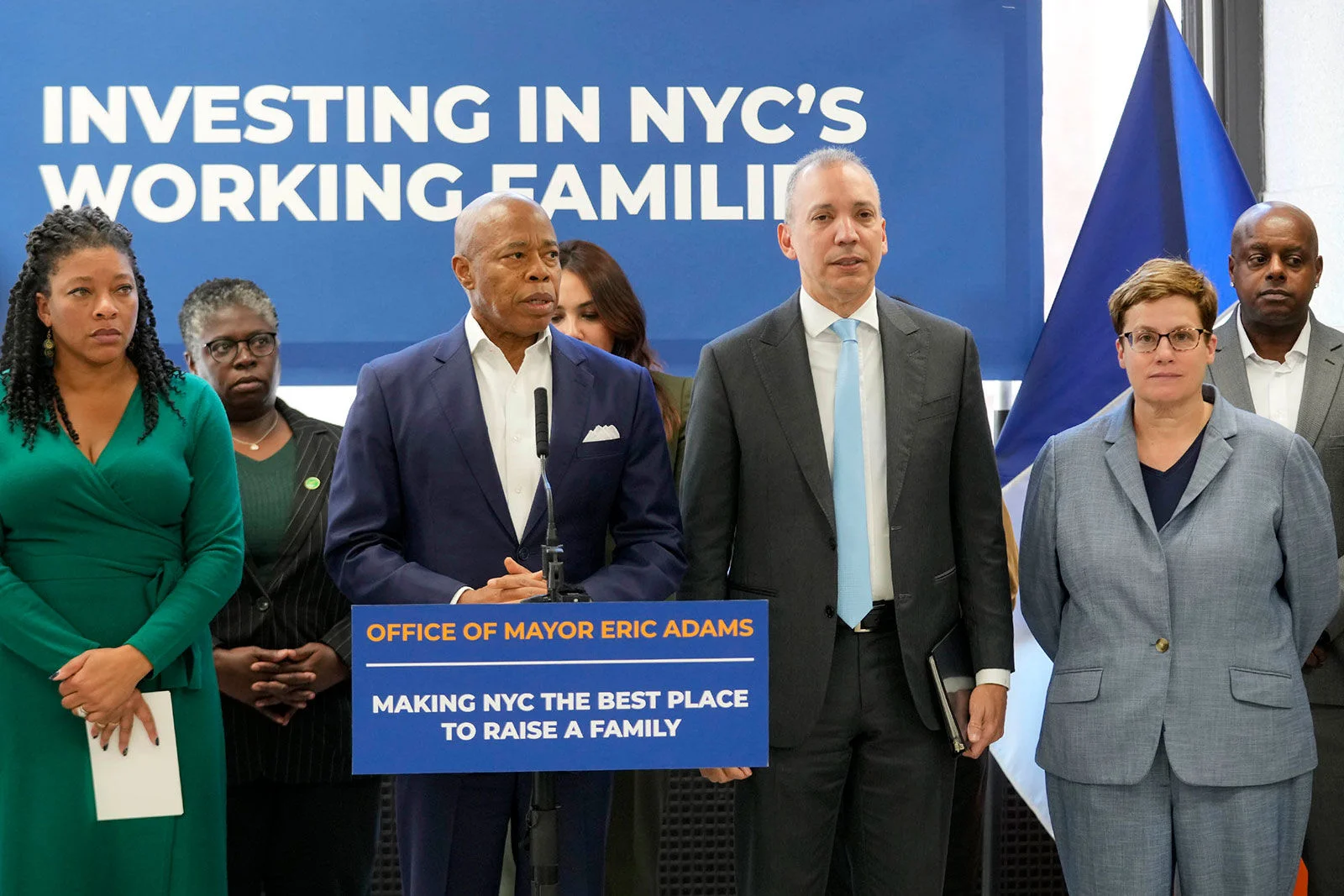
Mayor Eric Adams on Tuesday announced a major expansion of New York City’s commercial driver’s license (CDL) training program, an initiative designed to help justice-involved New Yorkers secure stable, high-paying jobs in the trucking industry while addressing labor shortages.
The program, run in partnership with workforce development company Emerge Career and the Mayor’s Office of Criminal Justice (MOCJ), will train and place 300 additional formerly incarcerated New Yorkers into full-time employment.
Uzoma “Zo” Ochingwa, Co-Founder and Co-CEO of Emerge Career, said the expansion marks a “major step forward for both public safety and economic opportunity in our city.” He added: “We are an AI-powered workforce development company that partners with governments to train justice-involved, low-income, and underserved populations into high-demand trade careers. On behalf of Emerge, I want to thank Mayor Adams, the Mayor’s Office of Criminal Justice, and all of our partners for their commitment to creating real second chances and pathways to good jobs to New Yorkers who need it most.”
Mayor Adams praised the program as a win-win solution.
“We are just driving those who have had terrible encounters in their lives towards success,” he said. “We’re expanding our commercial driver’s license training program, an innovative criminal justice program that pairs formerly justice-involved individuals with commercial driver’s license training and jobs in an industry facing significant labor shortage.”
The mayor underscored the financial and social impact of the initiative, noting that money spent incarcerating individuals can instead be used to invest in their future.
“This is a multi-million dollar investment that we’re making on each individual who we would have been spending that money housing in a correctional facility. We are now allowing them to contribute to society, raise a family, and secure good working-class jobs,” Adams said.
According to the mayor, unemployment among formerly incarcerated Americans stands at 60 percent, compared to the national average of about 5 percent. However, CDL training offers a pathway to salaries ranging from $78,000 to $124,000 annually.
“We cannot expect people to reintegrate into society if we’re not giving them the tools and opportunity to do so. That’s what we’re doing with this CDL program—an upstream solution,” Adams added.
Deanna Logan, Director of the Mayor’s Office of Criminal Justice, highlighted the success of the program so far.
“Unlike those bad numbers of 60 percent not getting a job, we got great numbers—95 percent graduation rate, financial stability for hardworking New Yorkers that are deserving of second chances. Our investment in workforce training is helping to break cycles of poverty and crime,” she said.
One beneficiary, Iovanny Medina, shared how the program transformed his life after years of struggling to find stable employment due to a criminal record.
“This program isn’t about training. It’s about hope, redemption, and building a future,” Medina said. “For the first time in decades, I feel like I have a career ahead of me, not just another job. My dream is simple: to provide for my family and to show others coming home from prison that a second chance really is possible.”
Mayor Adams concluded that the expansion is not only about jobs but also about strengthening public safety and community stability.
“With this expanded CDL program, we’re shifting up a gear to prevent recidivism and keep our city safe. It’s putting justice-involved New Yorkers on a path to build their American dream one gear at a time,” he said.







